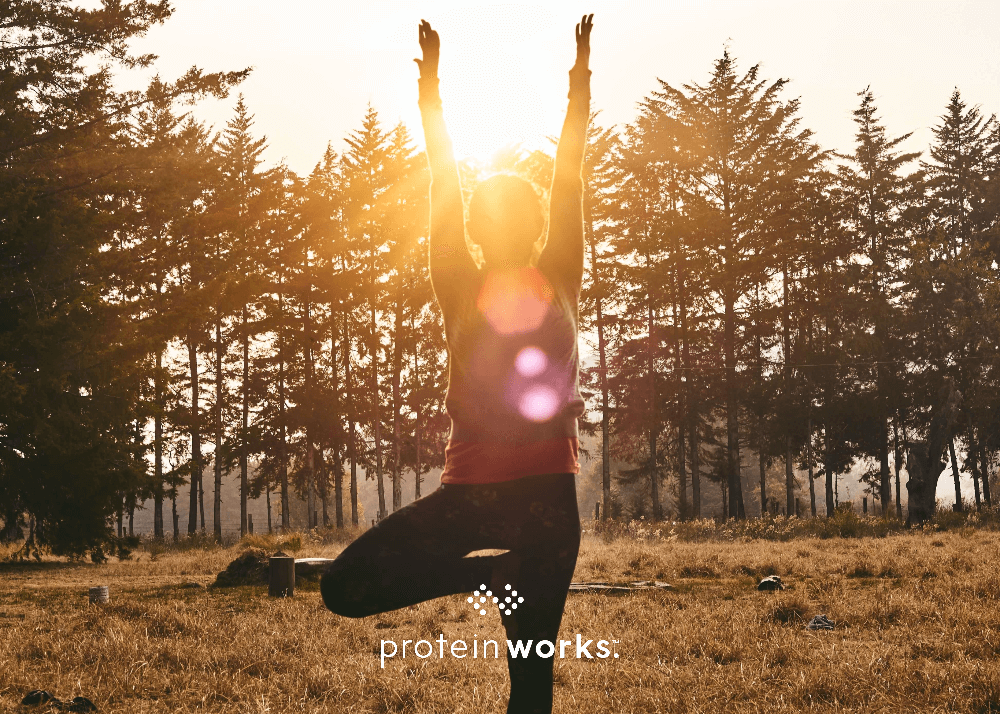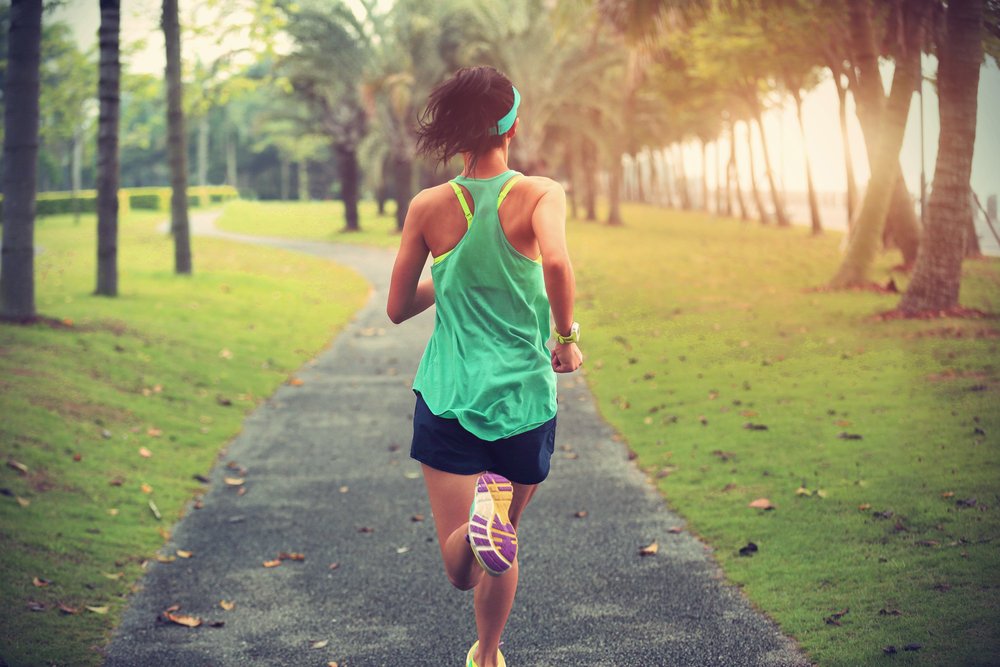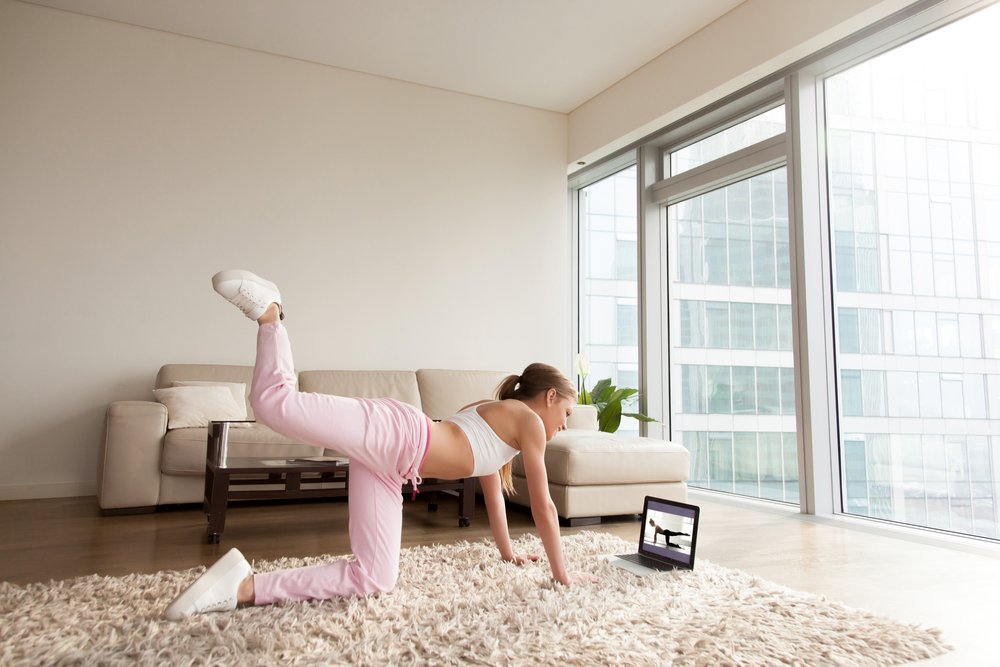
Benefits Of Exercise On Mental Health
In our fast-paced world, mental health has become a critical concern for many. According to Mind, a leading mental health charity, approximately one in four people in the UK will grapple with a mental health issue each year (1), and one in six individuals in England will face common problems like anxiety and depression each week (2).
In this day and age, the need for holistic approaches to mental well-being is more pressing than ever.
Embracing a physically active lifestyle has emerged as a potent means to boost mental well-being. As we step into 2023, let’s explore the myriad ways in which exercise can profoundly impact our mental health.
Discover 5 of the best benefits of exercise on mental health below…
1. Reduced Stress and Anxiety
First on our list of the benefits of exercise on mental health is a decline in stress and anxiety. In our demanding lives, stress is an inevitable companion. While manageable levels of stress can motivate us to achieve our goals, excessive and uncontrollable stress can detrimentally affect our mood, self-esteem, and relationships. (3)
Engaging in regular physical activity provides an effective outlet for burning off nervous energy, helping to mitigate the intensity of stress.
Studies have consistently shown that individuals who engage in regular exercise experience lower levels of stress and anxiety. Further studies suggest that being active can reduce anxiety levels in those with mild symptoms (4) and even help in the treatment of clinical anxiety. (5)
2. Improved Mood
Exercise has a remarkable influence on mood (6) and helping you start your week off on the right foot. Research demonstrates that even a brief bout of physical activity, such as a brisk walk, can lead to increased feelings of contentment, wakefulness, and calmness. Notably, this positive impact is most pronounced when initiated from a lower baseline mood. (7)
Another study led by Benson Hoffman, Associate Professor in Psychiatry and Behavioural Sciences at Duke University, went as far as to suggest that exercise may be as effective for treating depression as antidepressants. (8)
3. Increased Productivity
It’s a commonly held belief that sitting for long periods isn’t good for you. From slowing your metabolism, which can affect the body’s ability to regulate blood sugar, blood pressure, and break down body fat (9), to leading to lower work productivity and decreased mental wellbeing (10), there are many good reasons to encourage us to stand up more.
That’s one of the reasons forward-thinking companies such as Google and Nike introduced in-office gyms and office-based yoga sessions for their employees.
Not only does workday exercise improve wellbeing, but it can also lead to a 72% improvement in time management and the amount of work completed on exercise days (11). Participants of another study reported an increase or positive correlation between exercising and job performance, good mood and subjective health. (12)
This is likely due, in part, to the positive impact of aerobic exercise on brain regions associated with memory and learning. (13)
4. Better Sleep
The relationship between sleep and mental health is profound and there are lots of tips to ensure a better night’s sleep, as well as aids like our Sleep Deep formula. However, mental health problems can have a negative impact on sleep and a lack of sleep can affect your mental health. (14)
Sure, many of us have experienced a good night’s sleep after smashing it in the gym, but is there any actual scientific evidence to suggest a positive link between exercise and better sleep? Yes, there is.
Charlene Gamaldo, M.D., medical director of Johns Hopkins Center for Sleep at Howard County General Hospital, says there’s solid evidence that exercise doesn’t just help you fall asleep more quickly but that it also improves sleep quality, stabilises your mood, and decompresses the mind.
This is because moderate aerobic exercise increases the amount of slow wave sleep (also known as deep sleep), which allows your body and brain to rejuvenate.
The great news is you don’t have to put in a marathon session to see same-day results. “It’s generally not going to take months or years to see a benefit,” says Gamaldo. Just 30 minutes of moderate aerobic exercise could be enough to see a positive difference in sleep quality. (15)
5. Happiness
Last on our list of benefits of exercise on mental health is the best of all, the one we all strive for, happiness!
One study by Yale and Oxford universities even discovered that the happy feeling brought on by exercise outweighs a £19,000 hike in salary. After studying data on the physical and emotional wellbeing of more than 1.2 million Americans, researchers found that non-active people felt bad for an average of 18 days more than those who exercised regularly. (16)
But why does exercise make us happy? According to an article by Leo Widrich for Fast Company, when we exercise our brains see it as a moment of stress and does two things to combat it. It releases a protein called BDNF (Brain-Derived Neurotrophic Factor) to repair your memory neurons, which makes us feel at ease. And it also releases endorphins which minimise discomfort, block pain, and are associated with a feeling of euphoria. Combined, the BDNF and endorphins result in a feel-good feeling. (17)
And there’s more good news. You don’t actually have to exercise for that long to reap the happy benefits. In her book, ‘The First 20 Minutes’, New York Times best-selling author Gretchen Reynolds says that just 20 minutes exercise is all it takes to get the maximum happiness boost. “The first 20 minutes of moving around, if someone has been really sedentary, provide most of the health benefits. You get prolonged life, reduced disease risk — all of those things come in in the first 20 minutes of being active.” (18)
Which Physical Activity is Best?
So now we know the fantastic benefits of exercise, which activity is best of the best when it comes to your wellbeing? Does one form of exercise take first place on the sporting podium when it comes to improving your mood?
Today, there are more options than ever when it comes to choosing your exercise of choice. From YouTube yoga to spin sessions, it’s hard to know where to start. So it’s good to know that one study found that any form of exercise – from aerobic to anaerobic and resistance training – had a positive impact on the participant’s happiness. (19)
Training outside is also a great option to consider as studies have shown that exercising in the great outdoors can heighten self-esteem, improve mood, lower stress levels, and improve sleep quality. (20)
Working out with other people, be it in a team game or group exercise class, brings further wellbeing benefits. One study found group exercisers to be more physically active and to feel more connected to those around them. This could be down to the social and supportive nature of group activities. (21)
Choosing Your Path to Well-Being
In the diverse landscape of modern fitness, there is no one-size-fits-all approach. Whether you find solace in running, the meditative flow of yoga, or the camaraderie of group exercise, the key is to discover an activity that resonates with you.
Ultimately, the path to mental well-being through exercise is a personal journey. The important thing is to find an activity that you love, stick with it, and relish the feel-good benefits that it brings.
Incorporating exercise into your routine is a powerful step towards achieving optimal mental health. As we navigate the complexities of modern life, let’s remember that a holistic approach to well-being begins with movement, setting the stage for a brighter, more balanced future.
So the answer is to simply do whatever works for you. Whether it’s running, swimming or trampolining, discover something you love, stick to it, and enjoy the feel-good benefits.
Don’t forget to use one of our amazing protein shakes or foods and snacks to support your fitness journey! And, make sure you read through our other Locker Room articles for more tips and tricks.
References
(1) McManus, S., Meltzer, H., Brugha, T. S., Bebbington, P. E., & Jenkins, R. (2009). Adult psychiatric morbidity in England, 2009: results of a household survey. The NHS Information Centre for health and social care
(2) McManus S, Bebbington P, Jenkins R, Brugha T. (eds.) (2016). Mental health and wellbeing in England: Adult psychiatric morbidity survey 2016. Leeds: NHS digital
(3) https://www.nhs.uk/oneyou/every-mind-matters/stress/?WT.tsrc=Search&WT.mc_id=Stress&gclid=CjwKCAiAjrXxBRAPEiwAiM3DQuswHGGEbvd4OhQ0oBmQQJUvuIv4qq3ptaeOWFbygbJ0NPgD4LII2xoChXgQAvD_BwE
(4) Conn, V.S. (2010). Anxiety outcomes after physical activity interventions: meta-analysis findings. Nursing Research, 59 (3), 224–231
(5) Asmundson, G.J.G., Fetzner, M.G., DeBoer, L.B., Powers, M.B., Otto, M.W. & Smits, J.A.J. (2013). Let’s get physical: a contemporary review of the anxiolytic effects of exercise for anxiety and its disorders. Depression and Anxiety, 30 (4), 362–373
(6) Penedo, F.J. & Dahn, J.R. (2005). Exercise and well-being: a review of mental and physical health benefits associated with physical activity. Current Opinion in Psychiatry. 18 (2), 189–193
(7) Kanning, M. & Schlicht, W. (2010). Be Active and Become Happy: An Ecological Momentary Assessment of Physical Activity and Mood. Journal of Sport & Exercise Psychology, 32 (2), 253–261
(8) Hoffman BM, Babyak MA, Craighead WE, Sherwood A, Doraiswamy PM, Coons MJ, Blumenthal JA. Exercise and pharmacotherapy in patients with major depression: one-year follow-up of the SMILE study
(9) https://www.nhs.uk/live-well/exercise/why-sitting-too-much-is-bad-for-us/
(10) Puig-Ribera A, Martínez-Lemos I, Giné-Garriga M, González-Suárez ÁM, Bort-Roig J, Fortuño J, Muñoz-Ortiz L, McKenna J, Gilson ND. Self-reported sitting time and physical activity: interactive associations with mental well-being and productivity in office employees
(11) J.C. Coulson, J. McKenna, M. Field. Exercising at work and self‐reported work performance. International Journal of Workplace Health Management. 26 September 2008
(12) Jacob Drannan. The Relationship Between Physical Exercise and Job Performance: The Mediating Effects of Subjective Health and Good Mood. Arabian Journal of Business and Management Review
(13) Lisanne F. ten Brinke, MSc, Niousha Bolandzadeh, MSc, Lindsay S. Nagamatsu, PhD, Chun Liang Hsu, MSc, Jennifer C. Davis, PhD, Karim Miran-Khan, PhD, MD, and Teresa Liu-Ambrose, PhD, PT.Aerobic Exercise Increases Hippocampal Volume in Older Women with Probable Mild Cognitive Impairment: A 6-Month Randomized Controlled Trial
(14) https://www.mind.org.uk/information-support/types-of-mental-health-problems/sleep-problems/sleep-problems/
(15) https://www.hopkinsmedicine.org/health/wellness-and-prevention/exercising-for-better-sleep
(16) Sammi R Chekroud, BA, Prof Ralitza Gueorguieva, PhD, Amanda B Zheutlin, PhD, Prof Martin Paulus, MD, Prof Harlan M Krumholz, MD SM, Prof John H Krystal, MD, et al. Association between physical exercise and mental health in 1·2 million individuals in the USA between 2011 and 2015: a cross-sectional study. The Lancet Volume 5, Issue 9, P739-746, Sept 2018
(17) https://www.fastcompany.com/3025957/what-happens-to-our-brains-when-we-exercise-and-how-it-makes-us-happier
(18) Gretchen Reynolds “The First 20 Minutes: Surprising Science Reveals How We Can Exercise Better, Train Smarter, Live Longer,’’
(19) Moslem Sharifi, Mohammad Reza Hamedinia, Seyed Alireza Hosseini-Kakhak. The Effect of 8 Weeks of Aerobic, Anaerobic and Resistance Training on some of Endocannabinoid System Agents, Serotonin, Beta-Endorphin and BDNF in Young Men
(20) Valerie F Gladwell, Daniel K Brown, Carly Wood, Gavin R Sandercock, and Jo L Barton. Source: The great outdoors: how a green exercise environment can benefit all
(21) IsabelleDoré Jennifer L. O’Loughlin Mireille E.Schnitzer Geetanjali D.Datta LouiseFournier. The longitudinal association between the context of physical activity and mental health in early adulthood. Mental Health and Physical Activity Volume 14, March 2018








No Comments yet!